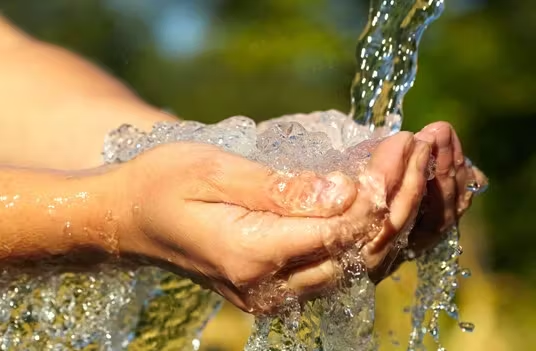BY KASE GREATNESS
Leonardo Da Vinci once said, “Water is the driving force of all nature.” This profound statement encapsulates the indispensable role that water plays in our lives. There is also a popular adage, “water has no enemy,” which reflects its universal necessity. Water is fundamental to human survival, environmental health, and economic stability. However, the importance of clean water cannot be overstated, as it is crucial for drinking, cooking, sanitation, and agriculture.
The quest for clean water is not new. Ancient civilizations like the Indus Valley Civilization in India and Ancient Rome recognized the importance of clean water for health and sanitation. They developed sophisticated systems to ensure a reliable supply of clean water. The Romans, for example, built aqueducts to transport water from distant sources to their cities, while the Indus Valley Civilization had well-planned wells and drainage systems. These early innovations laid the foundation for our understanding of water management and the importance of clean water in maintaining public health.
Over time, the concept of clean water has evolved, driven by advancements in technology and scientific understanding. Modern water treatment plants use a variety of processes to ensure that water is safe for consumption. These processes include filtration, disinfection, and sedimentation. Filtration removes physical impurities, disinfection kills harmful microorganisms, and sedimentation allows particles to settle out of the water. Advanced technologies such as ultraviolet (UV) disinfection and reverse osmosis have further improved our ability to provide clean water. UV disinfection uses UV light to kill bacteria and viruses, while reverse osmosis uses a semipermeable membrane to remove ions, molecules, and larger particles from drinking water.
Clean water is essential for human health and well-being. It is necessary for drinking, cooking, and personal hygiene. Without clean water, we are at risk of waterborne diseases such as cholera, typhoid fever, and diarrhea. These diseases can cause severe health issues, including dehydration, stomach cramps, and even death. According to the World Health Organization (WHO), waterborne diseases are a major public health concern, especially in developing countries. Ensuring access to clean water is critical to preventing these diseases and promoting overall health.
Clean water is also vital for environmental sustainability. It supports ecosystems by providing habitats and food sources for a variety of plants and animals. Healthy ecosystems are essential for biodiversity, which in turn supports ecological balance and resilience. Polluted water can disrupt these systems, leading to the decline of certain species and harming aquatic life.
Agriculture relies heavily on clean water for irrigation and livestock. Without sufficient and clean water, crop yields can decrease, leading to food shortages and economic instability. Clean water ensures that crops grow healthily and yield nutritious produce, supporting food security and the economy. In many regions, agriculture is a major economic activity, and water scarcity or contamination can have severe economic consequences.
Modern water treatment methods have significantly improved our ability to provide clean water. Water treatment plants use a combination of physical, chemical, and biological processes to remove contaminants. Filtration is one of the most common methods, where water passes through filters made of sand, gravel, or other materials to remove particles. Disinfection, typically using chlorine or other chemicals, kills harmful microorganisms. Sedimentation allows particles to settle out of the water, and advanced methods like UV disinfection and reverse osmosis further purify the water.
Proper waste management and pollution reduction are critical in protecting water sources from contamination. Industrial waste, agricultural runoff, and improper disposal of household waste can introduce harmful chemicals and pathogens into water supplies. Implementing strict regulations and promoting sustainable practices can help reduce pollution and safeguard water quality.
Consuming untreated water can lead to serious health consequences. Untreated water may contain harmful bacteria, parasites, and chemicals that cause waterborne illnesses such as cholera, typhoid fever, and diarrhea. These illnesses can result in dehydration, stomach cramps, and other severe health issues. Ensuring that water is properly treated and safe for consumption is essential to prevent these risks.
Clean water is not just a necessity; it is a fundamental right. As we continue to develop and improve water treatment technologies and practices, it is crucial to prioritize clean water to safeguard our health and protect the environment. In summary, the benefits of clean water are manifold, promoting good health, supporting agriculture, sustaining ecosystems, and enhancing our overall well-being. By valuing and protecting our water resources, we can ensure a healthier and more sustainable future for all.


